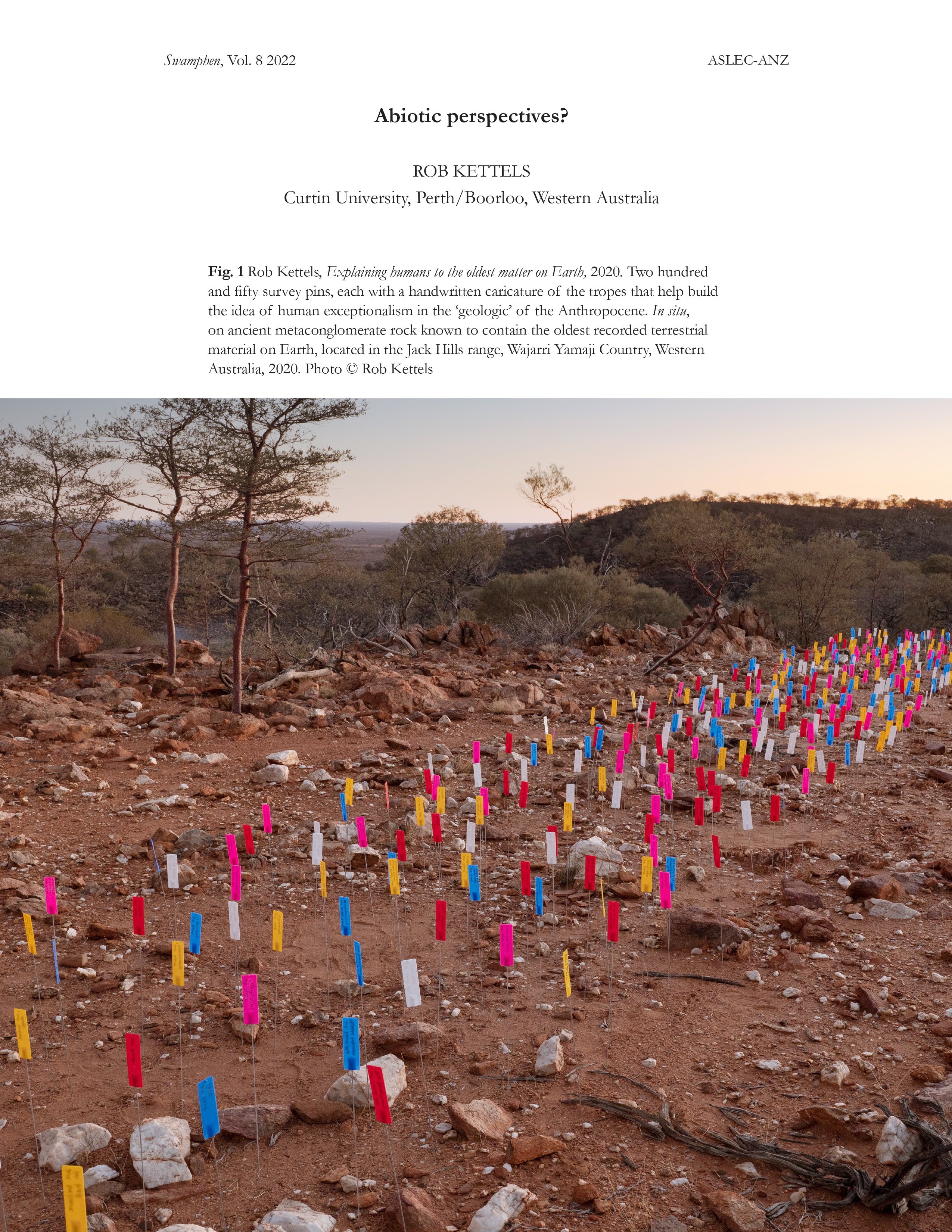Abiotic Perspectives?
DOI:
https://doi.org/10.60162/swamphen.8.16706Keywords:
abiotic matter, durational performance, site responsive art, White Geology, masculine parody, secular pilgrimage, Anthropocene, Kathyrn Yusoff, geoaesthetics, geohumanitiesAbstract
I want to begin with an image of the vast ephemeral salt lake called Wilkinkarra/Lake Mackay, sitting in Pintupi Country in the remote Western Desert of Western Australia. This was a key site for my early research into ways to reimagine abiotic perspectives—to work with a ‘geologic’ using creative methods of site responsive artworks. I document these explorations of place as a means to explore my attempts and struggles to unpack complexities in the colonial settler spatiotemporal imaginary of the environment in the Anthropocene. My art practice is informed by the concept of uncritical “White Geology” as identified by the inhuman geographer, Kathryn Yusoff. In particular, the Eurocentric sociohistorical entanglements that help maintain a hierarchical outlook regarding the perception of abiotic matter. In September 2020, following my introduction to this approach at Ngā Tūtaki – Encounter/s, I completed three experimental site responsive artworks on a field trip to the Jack Hills in Wajarri Yamaji Country, in the Murchison district of Western Australia. This creative focus piece discusses secular pilgrimage and presents my durational performance art from that project.

Downloads
Published
Issue
Section
License
Authors who publish with this journal agree to the following terms:- Authors retain copyright and grant the journal right of first publication with the work simultaneously licensed under a Creative Commons Attribution License that allows others to share the work with an acknowledgement of the work's authorship and initial publication in this journal.
- Authors are able to enter into separate, additional contractual arrangements for the non-exclusive distribution of the journal's published version of the work (e.g., post it to an institutional repository or publish it in a book), with an acknowledgement of its initial publication in this journal.
- Authors are permitted and encouraged to post their work online (e.g., in institutional repositories or on their website) prior to and during the submission process, as it can lead to productive exchanges, as well as earlier and greater citation of published work (See The Effect of Open Access).
